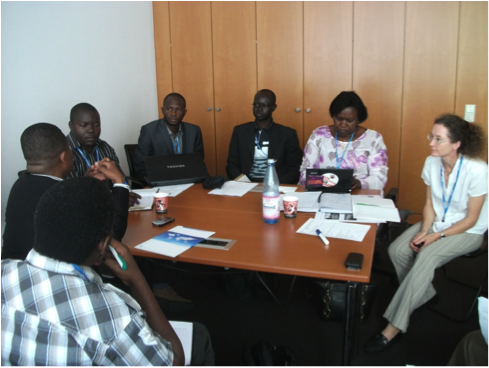LULUCF…hoo Wow!!!
8 July 2011

Mamady Kobele Keita
Climate change team leader
Guinee Ecologie
Guinea
During the June session in Bonn, I have been working on Land Use, Land Use Change and Forestry (LULUCF) and it’s amazing to see how most of the participants consider this issue. You are likely to hear “Hoo wow, LULUCF?”, “this is not our concern”, “no it’s for Annex 1 countries only”, “I have a limited knowledge on the issue”, “ if you know more about it, please help me to understand”, “it’s definitely too complicated for me”, “ I have no idea about it”. This “staying far from LULUCF” does allow parties to understand the issue and accordingly take responsibility for their parts.
Why is CAN-International paying close attention to LULUCF and why should non-Annex 1 parties be interested in the LULUCF issue? Because under the current provisions of the Kyoto Protocol, Annex 1 parties can hide their emissions from forest management, thus earning more credits while emitting at least 400 Mt of CO2 annually. Just like in other sectors, all emissions should be accounted for and all related consequences addressed.
The United Nations Framework Convention on Climate Change is clear on the issue in the following provisions:
Article 3, paragraph 1: “The Parties should protect the climate system for the benefit of present and future generations of humankind, on the basis of equity and in accordance with their common but differentiated responsibilities and respective capabilities. Accordingly, the developed country Parties should take the lead in combating climate change and the adverse effects thereof.”
Article 4, paragraph (a): …Parties shall (a) Develop, periodically update, publish and make available to the Conference of the Parties, in accordance with Article 12, national inventories of anthropogenic emissions by sources and removals by sinks of all greenhouse gases not controlled by the Montreal Protocol, using comparable methodologies to be agreed upon by the Conference of the Parties”
Although inviting Annex 1 parties to reduce their overall emissions of greenhouse gases by at least 5 per cent below 1990 levels in the commitment period 2008 to 2012, the Kyoto protocol limits direct human-induced land-use change and forestry activities to afforestation, reforestation and deforestation, excluding in the same time activities related to forest management.
The LULUCF working group within CAN-International has summarized the issue:
• LULUCF is a set of rules determining how Annex I Parties account for emissions from their land and forests.
• Currently it is mandatory to account for afforestation, reforestation, and deforestation, while it is voluntary to account for forest management, grazing land management, cropland management, and revegetation.
• In the first commitment period, the voluntary nature of accounting is being exploited by Annex I Parties to obtain credits without accounting for debits. In the second commitment period, Annex I Parties are trying to change the rules to avoid accounting for increased emissions. Either way, LULUCF is being used to falsely exaggerate emission reductions.
• Reports and analysis by the European Commission, the Stockholm Institute, the Postdam Institute, UNEP and CAN’s own analysis have all highlighted that LULUCF rules are playing a significant role in undermining Annex 1 mitigation efforts and contributing to the “Gigatonne Gap” between ambition in this process and what the science requires for addressing climate change.
• LULUCF could, however, be a source of real mitigation action.
As you can see, it’s really important for all parties, especially non-Annex 1 parties to fully consider this issue and keep following it. During the last Bonn session, our group wanted parties to consider the introduction of a paragraph on review process in future agreed documents. We really expect for Durban to see LULUCF rules that increase accountability and strengthen the level of ambition of developed countries so that forestry and land use sectors deliver emissions reductions. This will only be possible when non-Annex 1 parties take their responsibility on the issue and act in the way that allows a review in the LULUCF accounting rules. Otherwise, the second commitment period, starting in 2013 and called by these non-Annex 1 parties, will not deliver as expected.

